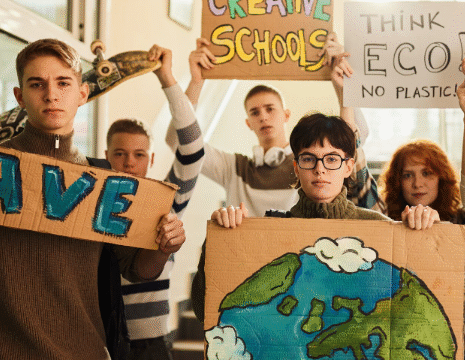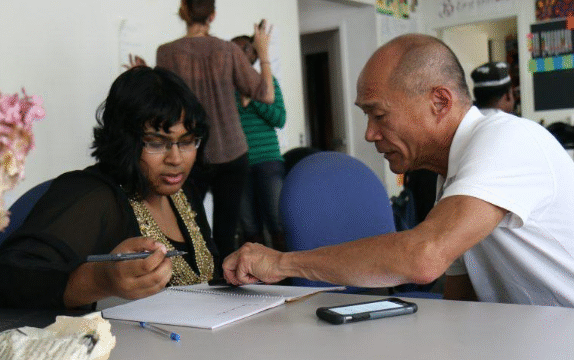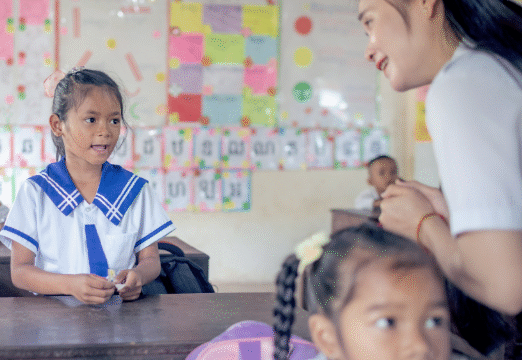Literacy is more than just the ability to read and write.
It is a fundamental skill that shapes opportunities,
builds confidence, and connects people to the wider
world. Across the globe, literacy programs have been transforming lives by opening doors to education, improving job prospects, and strengthening communities. While progress has been made, there is still much work to do, and the impact of these programs continues to ripple far beyond classrooms and libraries.
At its core, literacy gives people a voice. When individuals can read, they can access information that helps them make informed decisions about their health, their families, and their livelihoods. They can understand contracts, fill out applications, and engage with the digital world. Writing skills allow people to express themselves, share their stories, and participate in community discussions. In this way, literacy forms the foundation for personal independence and social participation.
Worldwide, literacy programs are particularly powerful in areas where access to formal education has been limited. In rural villages, community-led classes often serve as the first point of entry into learning for both children and adults. These programs are designed to fit local needs, sometimes combining reading instruction with lessons in farming techniques, small business skills, or health practices. By blending literacy with practical knowledge, they ensure that learning has an immediate and meaningful impact on daily life.
In urban centers, literacy programs help marginalized groups find new opportunities. Migrant workers, for instance, may join evening classes that teach language and reading skills, enabling them to navigate city life with more confidence. For refugees, literacy courses can ease integration into new countries by helping them understand local laws, communicate effectively, and pursue further education. These programs not only support individuals but also help communities grow stronger by promoting inclusion and understanding among diverse groups.
Children benefit greatly from early literacy programs. Reading at a young age builds the foundation for academic success, and many initiatives worldwide provide books, libraries, and reading sessions to encourage a love for learning. Programs that place an emphasis on storytelling and interactive activities help children develop comprehension skills while also sparking curiosity. When children grow up in an environment that values literacy, they are more likely to stay in school and continue building their skills over time.
Adults also see life-changing results from literacy programs. Someone who learns to read in adulthood may finally be able to manage their finances, understand medical instructions, or assist their children with homework. This not only enhances their own lives but creates a cycle of learning within families. Parents who value and practice literacy tend to pass on that enthusiasm to their children, creating a lasting impact across generations.
The economic benefits of literacy are also significant. Studies consistently show that higher literacy rates are linked to improved employment opportunities and stronger economies. Workers with reading and writing skills can adapt more easily to modern workplaces, where instructions, safety measures, and technology require comprehension. Entrepreneurs who learn literacy skills can manage their businesses more effectively, keeping records, reaching customers, and expanding their services. In this way, literacy programs contribute to both individual financial stability and broader economic growth.
Beyond personal and economic gains, literacy programs promote social progress. They empower people to engage with civic life by voting, participating in community meetings, and understanding public information. They also play a role in reducing inequality, as those who were once excluded from education gain the chance to stand on equal footing with others. In many countries, literacy initiatives have been key to advancing gender equality, giving women the tools to pursue education, employment, and leadership roles. With these opportunities, communities become more balanced and inclusive.
Technology has also expanded the reach of literacy programs. Digital tools such as mobile apps, online classes, and interactive learning platforms are making it easier for people to access reading and writing instruction, even in remote areas. Radio broadcasts and mobile libraries continue to play a role in regions where internet access is limited. These innovations allow literacy education to adapt to changing times while still focusing on the core goal: giving people the skills to read and write.
Of course, literacy programs face challenges. Funding, trained teachers, and access to materials are often limited, particularly in developing regions. Cultural and social barriers can also hinder participation, especially for women and girls in some communities. Yet, despite these obstacles, progress is being made. International organizations, governments, and local communities continue to invest in literacy as a way to build stronger futures. Every new program, no matter how small, contributes to a growing global movement toward education for all.
What makes literacy programs especially inspiring is their ripple effect. A person who learns to read not only improves their own life but also influences those around them. A parent who reads stories at home inspires children to do the same. A farmer who learns to read instructions on seed packets can share knowledge with neighbors. A worker who understands safety manuals can protect colleagues as well as themselves. In this way, the benefits of literacy extend outward, touching entire families, communities, and societies.
Looking to the future, the importance of literacy programs will only increase. As the world becomes more interconnected and reliant on technology, the ability to read and write will remain a vital skill. Global challenges such as climate change, public health, and social inequality all require informed citizens who can access and understand information. Literacy ensures that people are not left behind in addressing these pressing issues. Programs that continue to adapt and innovate will help create societies where knowledge is shared and opportunities are available to all.
In reflecting on the global impact of literacy programs, it becomes clear that they are not just about teaching letters and words. They are about unlocking potential, creating opportunities, and building stronger communities. They offer people the tools to navigate their worlds with confidence and to contribute to the progress of society. From the smallest village classroom to international digital initiatives, literacy programs remind us of the power of education to change lives. By supporting and expanding these efforts, the world moves closer to a future where everyone has the chance to learn, grow, and thrive.






